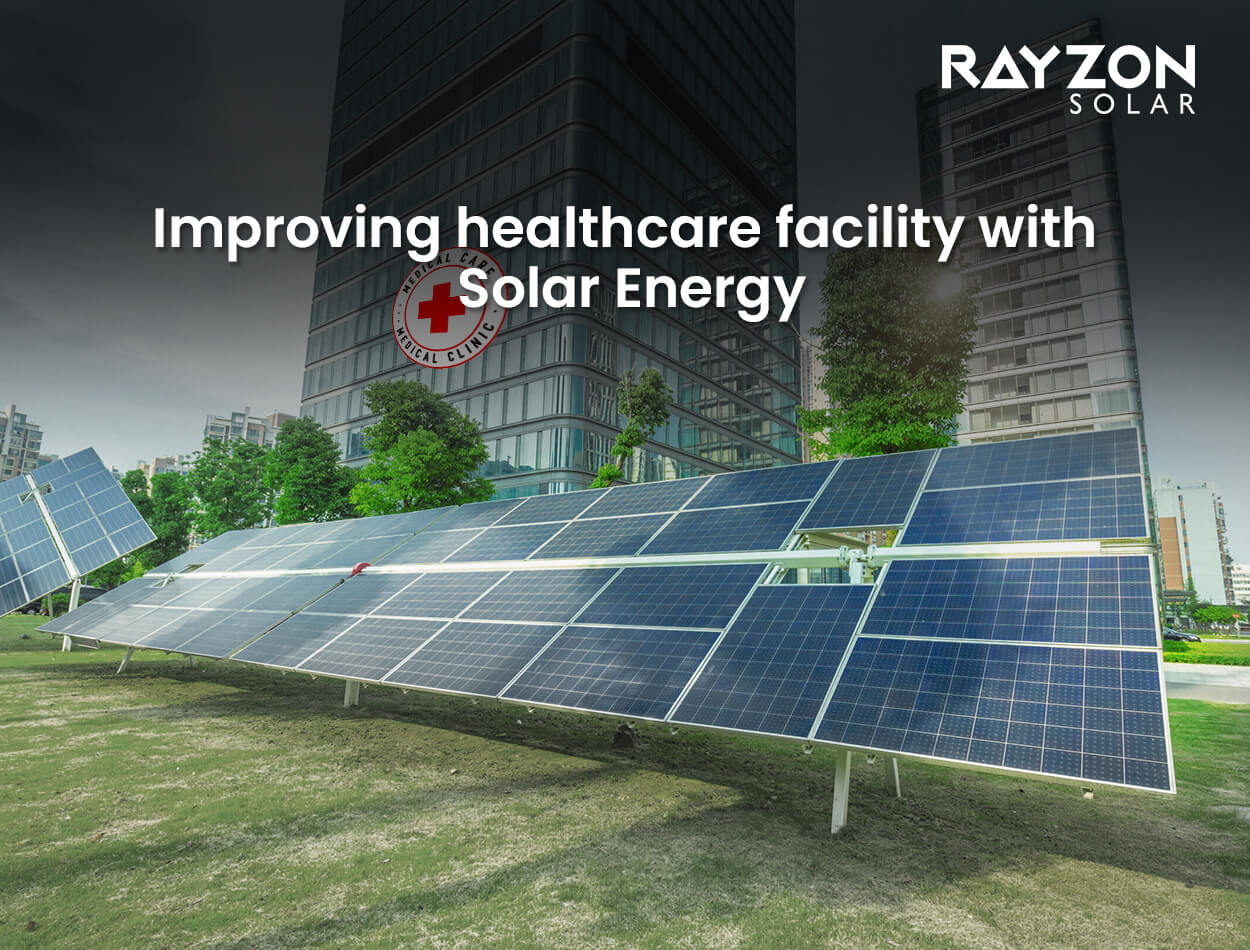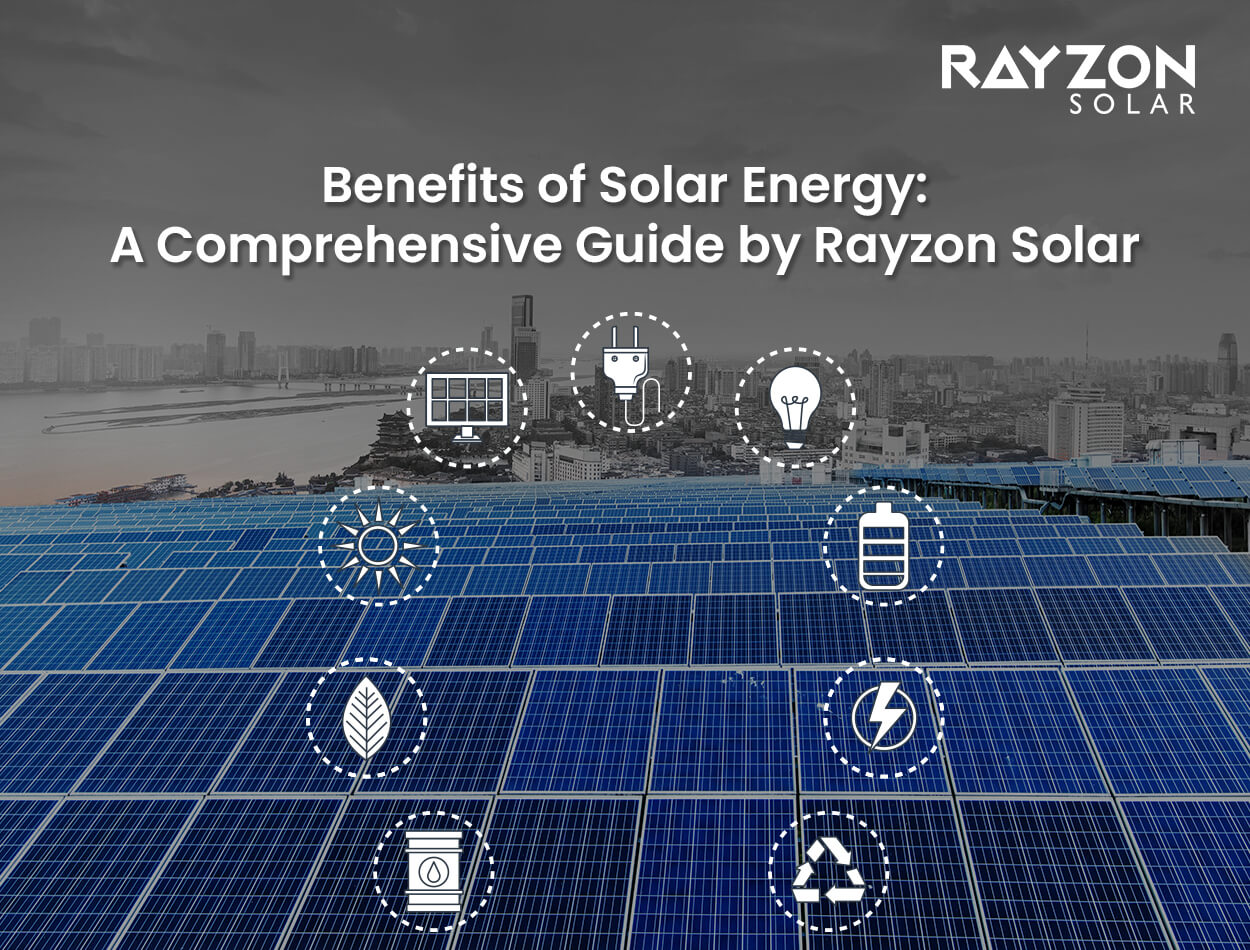
Solar Energy and Healthcare: Improving Access and Sustainability in Medical Facilities
In today’s world, where sustainability is increasingly critical, solar energy is revolutionizing various sectors, including healthcare. Hospitals and clinics trust consistent power to ensure the well-being of their patients, yet many regions face challenges like normal power outages and unreliable electricity. Solar energy is emerging as a reliable, sustainable, and cost-effective solution that is transforming healthcare. This blog explores how solar energy is improving access and sustainability in medical facilities, especially in remote and underserved areas, supported by real-world examples and compelling facts.
Solar-Powered Clinics: A Lifeline for Remote and Underserved Areas
In many remote areas, access to reliable healthcare is limited, with the lack of consistent electricity exacerbating the problem. Solar-powered clinics are becoming a lifeline, providing innovative solutions to these challenges.
1. Bridging the Gap:
According to the World Health Organization (WHO), more than 1 billion people globally lack access to basic healthcare, primarily due to the absence of reliable energy. Solar-powered clinics equipped with solar panels ensure that medical services are available 24/7, even in off-grid areas. For example, in South Sudan, solar-powered health centers have dramatically improved access to healthcare, reducing the dependence on diesel generators, which are costly and environmentally damaging.
2. Cost Savings:
While the initial investment in solar energy systems can be substantial, the long-term savings are significant. The International Renewable Energy Agency (IRENA) reports that solar energy can reduce electricity costs by up to 50% for healthcare facilities in developing countries. For example, in Uganda, solar power has reduced operational costs for rural clinics by eliminating the need for expensive and often rare diesel fuel.
3. Enhanced Patient Care:
Reliable solar energy ensures that healthcare providers can offer better care. In Nigeria, the lack of electricity has been linked to high maternal and infant mortality rates. However, solar-powered clinics are changing this by providing reliable electricity, which powers essential medical equipment, ensuring safe deliveries, and improving patient outcomes.
Powering Medical Equipment: The Backbone of Modern Healthcare
Medical devices are the backbone of modern healthcare, diagnosing, treating, and monitoring patients. Ensuring a reliable power source for these devices is crucial, and solar energy provides a perfect solution.
1. Uninterrupted Power for Critical Devices:
Critical medical devices like ventilators, dialysis machines, and incubators require a constant power supply. Solar energy systems, particularly when combined with battery storage, ensure these devices remain operational even during power outages. A study by the United Nations Development Programme (UNDP) found that solar power systems in Sierra Leone reduced equipment downtime by 80%, significantly improving patient care.
2. Energy Independence:
Solar-powered hospitals and clinics are less dependent on external energy sources, which can be unreliable and expensive, especially in remote areas. One remarkable example is Haiti’s Hospital Universities de Mirebalais, the world’s largest solar-powered hospital. This 300-bed facility operates with a 700 kW solar power system, producing enough electricity to cover all its daytime energy needs, considerably reducing its dependence on the national grid. By cutting down operational costs and ensuring continuous healthcare services, this hospital serves as a model for integrating renewable energy into critical infrastructure globally. Solar energy helps enhance sustainability and flexibility in healthcare.
Reference: https://www.designboom.com/architecture/worlds-largest-solar-powered-hospital-opens-in-haiti
3. Environmentally Friendly Healthcare:
Solar energy supports a more sustainable approach to healthcare by reducing dependence on fossil fuels. Health Care Without Harm states that the healthcare sector is responsible for 4.4% of global net emissions. Transitioning to solar energy helps mitigate this. A key example is the Norrtalje Hospital in Sweden, where its solar power installation significantly contributes to reducing carbon emissions by 130 tons annually. By embracing solar energy, healthcare facilities can minimize their carbon footprint, save on energy costs, and ensure a reliable power supply, promoting a more environmentally friendly healthcare system.
Reference: Healthcare Without Harm
Sustainability in Healthcare: A Greener Future
Sustainability is becoming a central focus in healthcare, and solar energy plays a crucial role in reducing the environmental impact of medical facilities.
1. Reducing Carbon Emissions:
The healthcare sector is a major energy consumer, significantly contributing to carbon emissions. Transitioning to solar power can drastically lower this carbon footprint. According to the World Health Organization (WHO), if all hospitals adopted solar energy, it could potentially reduce healthcare-related carbon emissions by up to 20% (WHO, 2021). This shift not only benefits the environment but also enhances the sustainability of healthcare facilities.
2. Long-Term Investment in Sustainability:
Solar energy systems represent a long-term investment that yields both cost savings and environmental benefits. With a lifespan of over 25 years, solar panels require minimal maintenance, reducing reliance on fossil fuels. This sustainability is crucial for healthcare facilities aiming to operate in an eco-friendly manner while achieving significant savings on energy costs.
3. Encouraging Broader Adoption:
As more healthcare facilities embrace solar energy, it paves the way for other industries to follow suit. This widespread adoption can result in significant environmental benefits as more sectors transition to renewable energy sources. In Rwanda, the government is committed to installing solar power in 500 health centres by 2025, highlighting the growing acknowledgment of solar energy's importance in sustainable development Ministry of Health, Rwanda, 2023.
Case Studies: Real-World Success Stories
The impact of solar energy on healthcare is not just theoretical; there are numerous real-world examples of how solar power has transformed medical facilities.
1. Kenyan Rural Clinics:
Several rural clinics in Kenya have adopted solar energy systems to address the challenges of unreliable electricity. Projects like the one in Bungoma County, supported by international NGOs, have installed solar power in 13 health facilities, allowing these clinics to provide improved healthcare services, including 24-hour laboratory operations and blood transfusions. This initiative has not only enhanced maternal and new-born health services but also reduced carbon emissions and saved substantial energy costs.
Reference: https://infonile.org/en/solar-energy-east-africa-health
2. Large-Scale Solar Systems: Nusa Penida Solar Project:
One notable example of a solar power system supporting healthcare and infrastructure is the 3.5 MW solar project in Nusa Penida, Indonesia, implemented just before the G20 summit in 2022. This installation includes battery storage and is designed to reduce the island’s reliance on fossil fuels, offering cleaner energy for the growing tourism industry and local infrastructure. While not specific to a hospital, this project shows the potential for large-scale solar systems to significantly cut carbon footprints in regions with high energy demand.
3. Global Healthcare Adopts Solar for Sustainability
Around the globe, hospitals and healthcare facilities are increasingly adopting renewable energy to meet sustainability targets. Solar installations are being used to reduce operational costs, improve energy flexibility, and lower greenhouse gas emissions. Hospitals are integrating solar solutions to not only meet their electricity demands but also to align with global sustainability goals set by governments and international organizations.
4. Mobile Clinics in Disaster Areas
Mobile clinics are sent to areas hit by disasters where there is no power. These clinics now use solar energy to keep running. For instance, after Hurricane Maria in Puerto Rico, solar-powered mobile clinics helped provide important medical services to remote communities. This shows how useful and dependable solar power can be in healthcare.
Conclusion
Solar energy is more than just a sustainable energy source; it’s a transformative force in healthcare. By providing reliable, cost-effective, and eco-friendly power, solar energy is enhancing access to medical services, particularly in remote and underserved areas. It’s ensuring that critical medical equipment remains operational, reducing the environmental impact of healthcare facilities, and setting a precedent for other sectors to follow. As the world moves towards a greener future, the role of solar energy in healthcare will only grow, paving the way for a more sustainable and accessible healthcare system for all.
Contact Us
If you're interested in learning more about how solar energy can revolutionize healthcare facilities or need assistance with implementing solar power solutions in your medical facility, we’re here to help. Our team of experts is dedicated to providing innovative and sustainable energy solutions tailored to your needs.
Get in Touch:
-
Email: contact@rayzonenergies.com
-
Phone: +91 96380 00461
-
Address: Block No. 105, B/H Aron Pipes B/H Hariya Talav, Karanj Kim - Mandavi Road, Gujarat 394110
Our team is ready to answer your questions and help you harness the power of solar energy to improve healthcare accessibility and sustainability.Contact us today to find out more!



